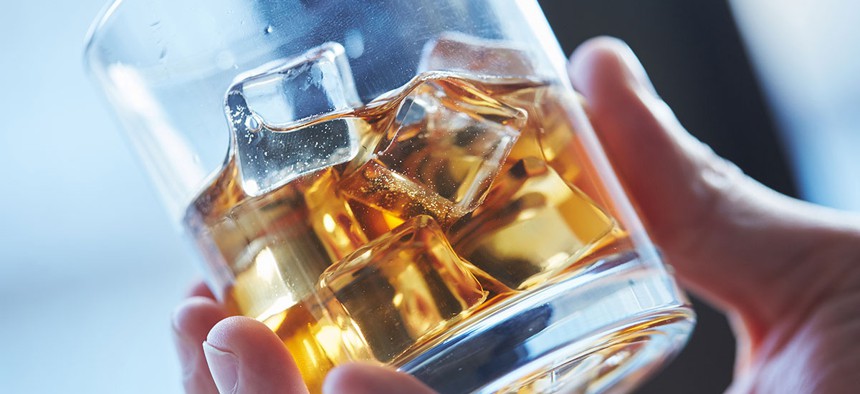
Take it easy on the booze. Maminau Mikalai/Shutterstock.com
Hangovers Cost the Economy Billions of Dollars
Excessive drinking doesn’t just result in a high bar tab, it also lowers productivity and costs the country billions.
One of my best friends can’t drink alcohol—at all. While that’s surely a bummer at times, it’s also had its upsides. First, she saves a ton of money when we go out. Without cocktails or beers, her bill is consistently 50 percent cheaper than everyone else’s. Second, having a friend who has been sipping water instead of wine has meant that at least one person is always able to make rational decisions, even after a long night.
That alone can be invaluable, especially since the cost of a wild night might be pricier than one might imagine. A new report from the Center for Disease Control finds that excessive drinking—particularly binging, defined as more than four drinks for women or more than five for men—cost the U.S. economy nearly $250 billion in 2010.
To come up with this price tag, the authors, Jeffrey J. Sacks, Katherine R. Gonzales, Ellen E. Bouchery, Laura E. Tomedi, and Robert D. Brewer tracked the price of lost productivity, criminal-justice fees for alcohol-related crimes, medical bills, and other costly ramifications associated with heavy drinking. They found that the most significant cost was the lost productivity of hungover workers who either showed up for work barely able to function, or who were unable to show up at all, which cost nearly $90 billion. In total, all forms of lost productivity accounted for about $179 billion of alcohol-related costs. The researchers estimate that the government, and thus taxpayers, cover about 40 percent of the total $250-billion bill.
The cost of motor-vehicle crashes related to alcohol accounted for about $13 billion, and the cost of criminal-justice activities, such as arrests and court fees, associated with drinking were about $15 billion. (That’s to say nothing of the very real human costs inherent in such occurrences.)
The report finds that the cost of heavy drinking has been growing over the past few years. It’s up 2.7 percent between 2006 and 2010, which outpaces inflation during the same period. But the actual cost of binge-drinking behavior can be hard to tally, the authors say. Assigning cause for instances of hospitalization or motor-vehicle crashes, for examples, can be imprecise. But overall, these figures might be conservative estimates, the researchers note, perhaps underestimating just how costly heavy drinking, and its aftermath, can be. My friend, in other words, is some kind of American hero.
(Image via Maminau Mikalai /Shutterstock.com)
NEXT STORY: Introducing Government as a Platform






